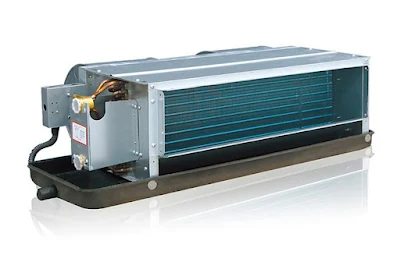Fan Coil Units
A fan coil unit (FCU) is a device consisting of a heat exchanger (coil) and a fan. The heat exchanger coils are typically made of copper or aluminum and are either finned or unfinned. The fan is used to circulate air across the coil, which can either heat or cool the air depending on the type of fluid circulating through the coil.
FCUs are commonly used in HVAC systems of residential, commercial, and industrial buildings. They are often used in conjunction with ductless split air conditioning systems, which provide the chilled or heated water to the FCUs.
Types of Fan Coil Units
There are three main types of FCUs:
-
Horizontal FCUs: These units are mounted on the ceiling or wall and are designed to blow air down into the room.
-
Vertical FCUs: These units are mounted on the wall and are designed to blow air into the room vertically.
-
Floor FCUs: These units are mounted on the floor and are designed to blow air up into the room.
Features of Fan Coil Units
FCUs can have a variety of features, including:
- Variable air volume (VAV): This feature allows the fan to operate at different speeds, which can help to conserve energy.
- Humidification: This feature adds moisture to the air, which can help to prevent dry air from causing discomfort or damage to furniture.
- Dehumidification: This feature removes moisture from the air, which can help to prevent condensation and mildew growth.
Benefits of Fan Coil Units
FCUs have several benefits, including:
- Flexibility: They can be installed in a variety of locations, including new and existing buildings.
- Efficiency: They are typically more efficient than central air conditioning systems.
- Comfort: They can provide precise and even temperature control.
- Durability: They are typically very durable and can last for many years with proper maintenance.
Drawbacks of Fan Coil Units
FCUs also have a few drawbacks, including:
- Higher initial cost: They are typically more expensive than central air conditioning systems.
- More complexity: They require more maintenance than central air conditioning systems.
- Noise: The fan can be noisy, especially at higher speeds.
Overall, FCUs are a versatile and efficient heating and cooling option for a variety of applications.
for HVAC books, please check https://bit.ly/m/HVAC


%20connected%20to%20a%20central%20AI%20hub%20displ.webp)

Comments
Post a Comment